By Jake Cardinal, Local Journalism Initiative Reporter
(ANNews) – It’s been over a year since the COVID-19 pandemic started and the world is still navigating through these chaotic times — however, as of March 17, 2021, more than 4.7 million COVID-19 vaccines have been distributed across the country. Things seem to be on the up and up.
As for the Indigenous population in the country, Indigenous Services Canada (ISC) is aware of 200,560 administered doses. Additionally, 586 First Nations communities have vaccinations underway.
These figures represent 54 doses administered per 100 adults in First Nations and Inuit communities. This is over five times that of the overall Canadian adult population.
Indigenous adults and communities are being prioritized for access to vaccines because they face higher risks for infection and serious illness, rooted in the history of colonialization and resulting systemic barriers, such as higher rates of chronic disease, reduced access to health care, and a lack of infrastructure (such as housing, water infrastructure, and medical services).
“With the one-year anniversary of the COVID-19 pandemic behind us, we look ahead with optimism and hope as vaccine roll-outs ramp up across the country,” said ISC in an update.
“Even after being vaccinated, everyone must continue to follow public health measures, including minimizing in-person interactions with people from outside your immediate household, avoiding closed spaces and crowded places, wearing a mask, and washing your hands frequently.”
In Calgary, Alberta’s first ever Indigenous-only urban COVID-19 clinic was launched on March 22. The clinic is located in the Aboriginal Friendship Centre of Calgary and is accessible to any First Nations person born in 1971 and earlier. Book an appointment here.
Elder Earnie Poundmaker, who works at the centre, believes that an Indigenous run vaccination clinic will ease tensions for people who are wary of the healthcare system. “I think it goes a long way because first of all, they’re coming into an Indigenous setting,” he said. “That’s going to present a sense of security, a sense of welcome for them.
“Once you begin speaking with people and allaying some of those fears that people have, they’re more open and accepting to it.”
The Metis Nation of Alberta has also announced its first ever Metis COVID-19 clinic operated in Edmonton. If you are a Metis Albertan born in 1971 or earlier (50 years and older), you can book an appointment to receive your first dose of an mRNA COVID-19 vaccine. Visit albertametis.com for a link to a booking tool.
Appointments are available March 27 through March 30.
In First Nations communities, as of March 18, ISC is aware of:
– 23,589 confirmed positive COVID-19
– 1,151 active cases
- 22,172 recovered cases
- 266 deaths
As for Alberta, the province had planned to loosen some restrictions on Monday March 22 but in light of the unstable Covid infection rate, Health Minister Tyler Shandro announced that there would be a delay in entering Phase 3 of Alberta’s relaunch plan.
Phase 3 would see restrictions eased on some team sports, casinos, bingo halls, places of worship, and indoor spaces such as theatres and museums.
Alberta has been using hospitalizations as their criteria for relaunching. Phase 3 requires that fewer than 300 Albertans need to be in hospital — on Friday, 264 people were receiving treatment – and the numbers are rising.
The possibility of re-opening has not been without controversy. On March 20, 696 cases were reported, which marks the largest one-day increase since mid-January. Furthermore, 189 cases of the B.1.1.7 variant have also been identified recently. It should also be noted that the current vaccines Alberta has are effective against this strain.
The Federal Government has urged provinces to slow down on re-opening plans and Alberta doctors believe it is too early to open up. Dr Deena Hinshaw, Alberta’s Chief Medical Officer of Health said that the next few weeks will be critical to prevent a third wave.
“A couple of weeks ago, we saw week-over-week rises in our new cases, followed by a stabilization,” Hinshaw said.
“And so right now, again, we’re in a very, very critical time and our collective actions now will determine what we see in the weeks ahead.”

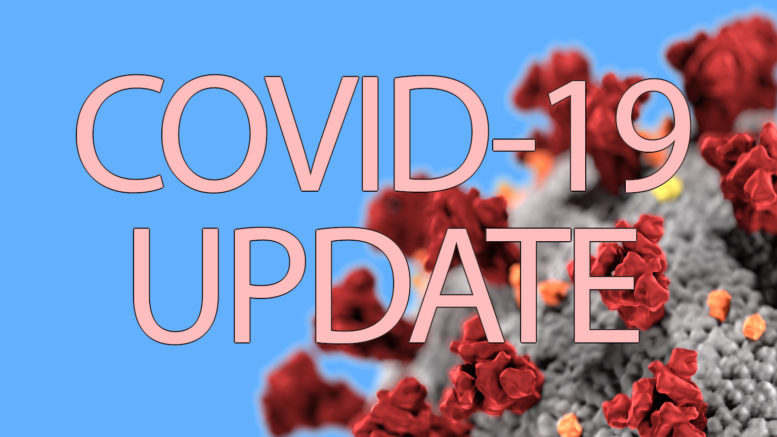

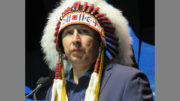
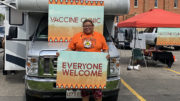
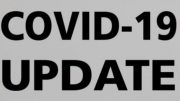
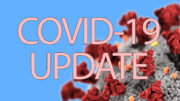
Be the first to comment on "Vaccination roll-out continues but rising infection rate postpones Phase 3 relaunch"